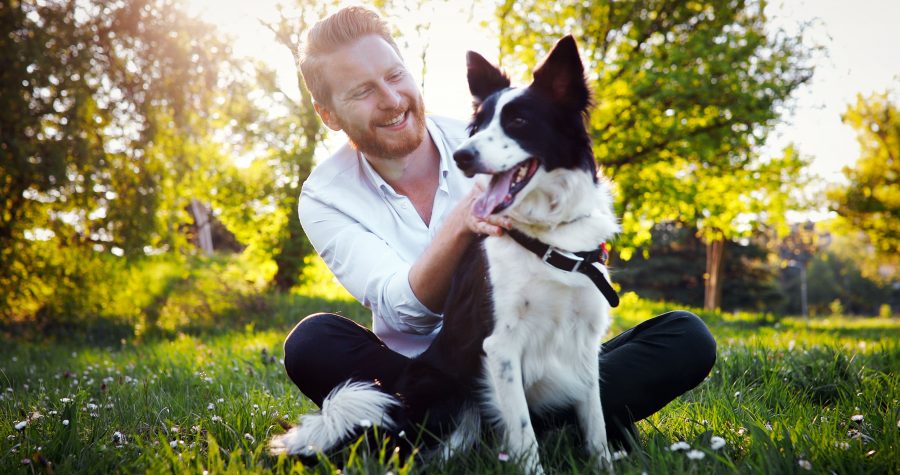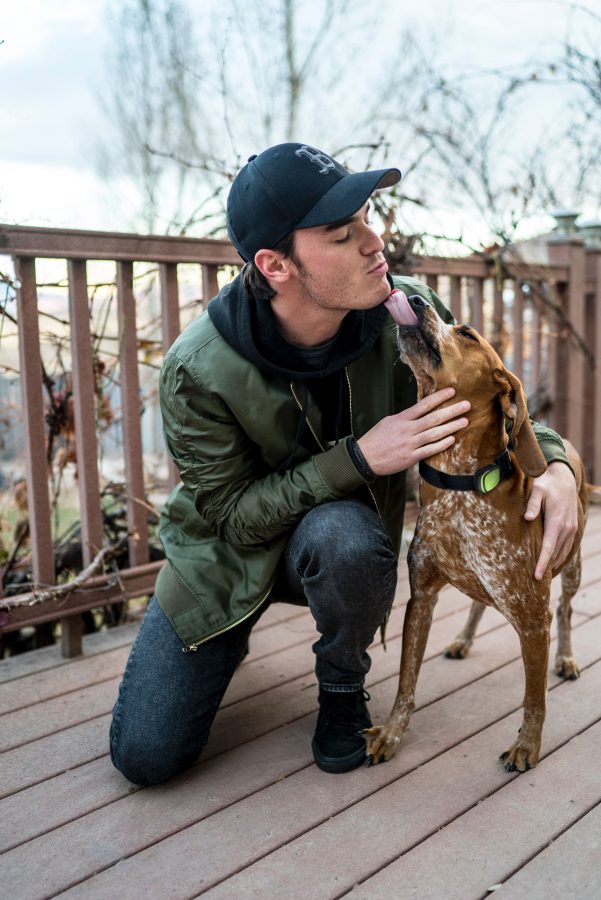Every occasion is a good one to celebrate and today there are celebrations for every event.
Did you know that even our beloved four-legged friends have a day to celebrate? August 26 is World Dog Day.
It began in 2004 in the United States on the initiative of Colleen Paige, a pet expert, who chose the date August 26 in memory of the adoption of her first dog at the age of ten.
The celebration then spread all over the world.
A dog´s companionship brings numerous benefits. To celebrate World Dog Day, let’s find out how to celebrate this anniversary and how our furry friends positively influence our lives.
Ideal day for the dog
To make your pet feel even more loved and appreciated, you could give it an ideal day entirely dedicated to it.
Here are some tips to celebrate your puppy in the best way:
- Morning. First, take your dog for a nice walk in the park so that it can run freely, carefree and stretching his legs a little. To make it play, you could buy a Kong, a special rubber game into which you can insert the food that the puppy must try to pull out, inserting not the usual feed, but a dog snack;
- Afternoon. After lunch, your four-legged friend will surely want to run again; take him back for a run around, offering to play games and educational exercises that help stimulate his mind.
- Evening. At the end of the day, go out with the dog again, but treat yourself to a quiet and longer walk so that the animal can smell and sniff everything it wants. Back home, pamper him with cuddles and attention. A dog needs to chew: while watching TV or reading a book, offer it a bone to chew and play with; your puppy will be very happy and, in addition, will avoid destroying any object in the house.
Having a dog: what are the benefits?
The dog is the oldest domestic species whose presence amongst humans is confirmed by 14,000- year-old finds: for millennia this animal has supported humans in hunting and breeding, adapting to our habits until becoming an inseparable life companion.

Thanks to a genetic mutation, the dog, as an aggressive animal, has developed a sociable and extroverted disposition with respect to its wolf ancestor, thus making it increasingly inclined to forge an affectionate bond with humans.
History has shown that the dog is a real member of the family, able to promote a calm, harmonious environment thanks to its positive attitude and absolute fidelity.
The benefits of having a dog in the house are:
- Education for children. Dogs not only keep company by entertaining the little ones, but have a strong educational function: for a child, a puppy is both a playmate and a growth companion, able to show him what it means to take care of another living being and respect its needs;
- Help for the elderly. The choice of a pet for an elderly person is increasingly widespread because of the extraordinary positive effects it has on physical and mental well-being. The dog, indeed, can be a valid reason to leave the house, do physical activity and not get bored in solitude;
- Company in sport. The dog is a faithful companion even when exercising. Jogging or outdoor walks, for example, greatly strengthen the dog-owner bond and will save you money for the gym. The advantages are such that Canicross has become widespread in recent years, a real discipline in which dog and owner run united by a belt on dirt tracks;
- Rehabilitation assistance. Dogs are wonderful protagonists in Pet Therapy – therapy from the animal through affection, often intended for the elderly, people with disabilities and children. It is now proven that the presence of a dog has a very positive influence on the course of therapy and treatment. Not only that: the dog can play a very important role in social recovery processes as in the case of prisons.
Dogs and children: benefits
The relationship between dogs and children deserves special attention. If a child is lucky enough to grow up with a puppy, over time they will create a strong bond and a unique partnership.
Having a dog has positive effects on important psychological aspects: personality development, education about rules, responsibility and relations.
Dogs have extraordinary benefits for children. The bond between child and dog is established from an early age: children learn to interact with the four-legged friend, beginning to note how the animal behaves and reacts.
By emulating parental behaviour, the child learns sufficient respect and care to be dedicated to the puppy.
The interaction with an animal is in fact a great educational tool, showing us that it´s not a toy, but a living being with its own needs and will.
The dog is a fun friend, but it is certainly not a game: it does not do everything we want and we must not try to impose on it. The animal therefore teaches us about respect and limits.
With the passage of time, the relationship turns into a firm friendship, based on mutual support, which can turn into a precious opportunity to teach the child the concept of responsibility towards others.
Brushing the hair, feeding it, taking it for a walk are not simple routine actions, but they can become life lessons that children will take with them forever.
In addition, during the childhood growing phase, a furry friend can help the child overcome moments of difficulty and loneliness: according to recent studies, dogs provide fundamental support in the most complex periods of childhood and adolescence, influencing the development of self-esteem.
The dog really proves to be the child’s best friend, making it feel the object of sincere and unconditional love.
How to adopt a dog at a kennel
Choosing to adopt a dog at a kennel is a unique experience that can give the opportunity to offer a new family to less fortunate puppies.
Adoption, as well as a gesture of love, is completely free.
In a kennel you meet dogs of all ages, breeds and sizes, all waiting for a new owner. Do not be frightened by the fact that the dog has been abandoned: it can be deeply affectionate and will bond with you forever.

It is necessary, however, to make a conscious and reasoned decision, since taking a puppy is a responsibility that will accompany you throughout your life.
Adoption at the kennel, in particular, is a commitment not only in moral terms, but also in law: those who adopt must in fact sign a form in which they agree to take care of the animal with due attention and never abandon it.
Some kennels offer an optional pre-foster period, trying out cohabitation before the actual adoption with the possibility of returning the dog only if there are serious problems.
During this time, the owner can be inspected at home in order to verify progress and the relationship with the new owner.
After starting your new life together with the puppy, it is necessary to complete all veterinary checks – in particular, deworming and insertion of a microchip to avoid losing it – and creating a health card with the dog’s data: name, age, weight, breed, any particular signs.
Finally, on the occasion of World Dog Day, here are some curiosities that you may not know about our four-legged friends:
- Dogs that do not bark. It may seem impossible, but the Basenji, a very ancient race, “yodels” without barking. Precisely because of its silent character, it was the ideal companion of the central African populations during the hunt.
- The word dog. The term has ancient origins and derives from the Latin canis. The Romans gave the Spanish archipelago its name the Canary Islands precisely because of the large presence of wild dogs on the islands;
- Extraordinary hearing. The dogs’ ears contain twice as many muscles as human ones, managing to hear sounds four times farther away than humans;
- Colours. All dog lovers wonder how their puppy sees the world. Dogs were once believed to see in black and white, whereas recently it was discovered that they perceive yellow and blue very well;
- Number of dogs. According to the latest research, in Italy 56% of families own a total 6,948,000 dogs.
- Speed. If the hare runs fast, the dog is not far behind. It can reach speeds of 72 kilometres per hour, a record achieved by an English greyhound.
